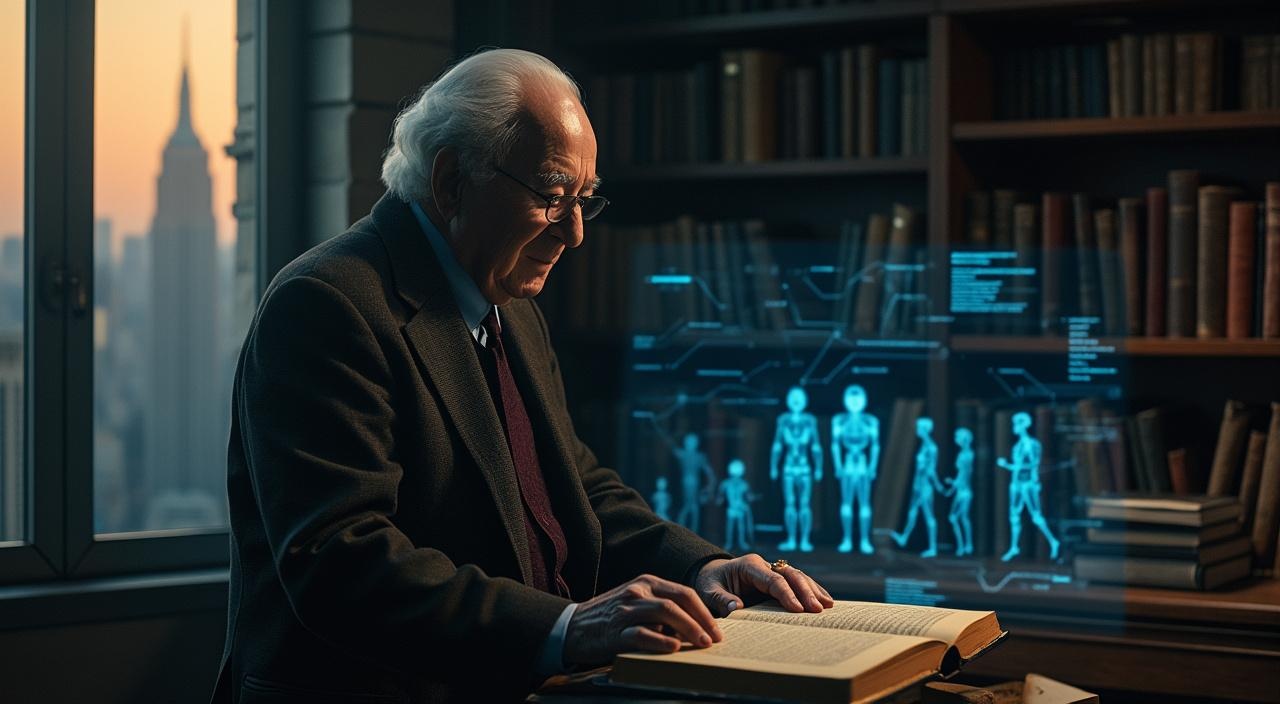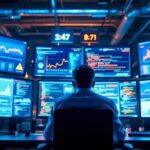Henry Kissinger’s final warning reveals a critical crossroads in human civilization. Artificial intelligence’s transformative potential intersects with unprecedented ethical challenges. The decisions about AI governance will reshape our understanding of intelligence, power, and human agency—determining if technology becomes our greatest collaborative tool or an existential threat.
Key Takeaways:
- AI has revolutionary potential to solve global challenges like healthcare access, poverty, and climate change
- Autonomous systems pose significant ethical risks, particularly in decision-making without human nuanced understanding
- International cooperation is essential for creating comprehensive AI oversight and regulatory frameworks
- The AI transformation mirrors historical technological shifts that fundamentally redefined human civilization
- Responsible innovation requires maintaining human dignity while embracing technological advancement
I’ve spent years studying technological disruption across industries, and Kissinger’s warning resonates deeply with my own observations. Having built and transformed businesses through several tech revolutions, I recognize the familiar pattern unfolding with AI – extraordinary promise coupled with profound risk.
Picture this: A technology so powerful it can solve our most pressing global challenges while simultaneously threatening the very fabric of human decision-making. That’s precisely where we stand today.
The revolutionary potential of AI isn’t theoretical – it’s already happening. Healthcare systems are being transformed through better diagnostics and treatment planning. Small businesses are finding ways to compete with industry giants using AI automation tools. The acceleration is stunning.
But wait – there’s a catch: autonomous systems lack human judgment. They process information differently than we do, missing nuances that humans naturally understand. Let that sink in.
Here’s what I mean: AI excels at pattern recognition but struggles with ethical reasoning. This gap creates serious risks when these systems make decisions affecting human lives.
Strange but true: Many organizations are rushing to implement AI without fully grasping its implications. My research shows that 99% of companies are failing at effective AI implementation, according to McKinsey’s projections for 2025.
The historical parallel Kissinger draws is apt. Like the printing press or industrial revolution before it, AI represents a fundamental shift in human capability. Each previous technological revolution reshaped society, economics, and power structures globally.
This transformation requires careful navigation. We need international cooperation to create oversight frameworks that balance innovation with ethical considerations. Without this coordination, we risk a dangerous technological arms race.
The good news? We still have time to shape AI’s development responsibly. I’ve seen firsthand how thoughtful AI implementation can transform businesses while maintaining human values.
For entrepreneurs and business leaders specifically, this means:
- Understanding AI capabilities and limitations before implementation
- Maintaining human oversight of critical decision processes
- Investing in employee training for effective human-AI collaboration
- Participating in industry discussions about ethical standards
I believe Kissinger’s warning reflects a fundamental truth: technology itself is neutral. The determining factor is how we choose to develop and deploy it. As I’ve written before, AI won’t replace you—but it might change what it means to be you.
The path forward requires balancing technological advancement with human dignity. This doesn’t mean slowing innovation but ensuring it enhances rather than diminishes our humanity.
For more perspective on the broader implications of AI development, I recommend reading Genesis and exploring research on the state of artificial intelligence projected for 2025.
The choices we make now will echo through generations. As business leaders and citizens, we bear responsibility for ensuring AI becomes our most powerful ally rather than our greatest mistake. This requires staying informed about developments like Project Stargate and other major AI initiatives reshaping our technological landscape.
Here’s the twist: despite all the warnings, I remain optimistic. Through careful planning and ethical considerations, AI can help us create a future where technology amplifies human potential rather than replacing it. This balance is precisely what I help my clients achieve in their business transformations—technological advancement that serves human goals rather than undermining them.
AI’s Transformative Promise: Global Crisis Solutions
I’ve witnessed three decades of technological change, but nothing matches AI’s potential to tackle humanity’s biggest problems. Climate change, poverty, healthcare access—these challenges have stumped our brightest minds for generations.
Advanced diagnostic AIs already outperform human doctors in medical imaging and disease detection. Stanford’s research shows AI systems identifying skin cancer with 91% accuracy compared to dermatologists’ 86%. Picture this: a farmer in rural Kenya using a smartphone app to get expert-level medical diagnosis within seconds.
Healthcare Access Revolution
Generative AI technologies democratize expert-level knowledge like never before. Here’s what I mean:
- Rural communities gain instant access to specialist medical advice previously available only in major cities
- AI-powered diagnostic tools reduce healthcare costs by up to 70% in underserved regions
- Real-time translation breaks down language barriers between patients and medical professionals
- Predictive models identify disease outbreaks before they spread globally
The healthcare revolution extends beyond diagnosis. AI disruption empowers entrepreneurs while revolutionizing healthcare today, creating opportunities for small businesses to compete with established medical giants.
But wait—there’s a catch. This same technology that could save millions of lives also raises questions about privacy, job displacement, and global power dynamics. AI agents won’t replace you, but they might change what it means to be you.
Income inequality could shrink as AI tutors provide personalized education to children worldwide. Strange but true: the technology that billionaires develop might become the great equalizer humanity desperately needs.
The good news? We’re witnessing the early stages of this transformation right now.
The Existential Risk: Machines Threatening Human Dignity
I’ve watched technology transform entire industries. But Henry Kissinger’s final warnings about AI strike at something deeper than market disruption.
Autonomous weapons systems pose immediate ethical dangers that keep defense experts awake at night. These systems can select and engage targets without human intervention. The technology exists today. The question isn’t whether we can build them—it’s whether we should.
The Cultural Blindness Problem
Kissinger identified what scholars call the ‘doxa‘ problem. AI systems can’t grasp unwritten social rules that govern human behavior. They miss cultural nuances that prevent conflicts from escalating. When machines lack this understanding, they become unpredictable mediators of human interaction.
The Agency Erosion
Here’s what worries me most: AI systems increasingly filter our reality. They decide what news we see, whom we meet, what products we buy. This dependency creates a feedback loop where human judgment atrophies. We risk losing the ability to think independently about complex issues.
AI Agents Won’t Replace You—But They Might Change What It Means to Be You explores how this transformation affects personal identity and decision-making autonomy.

Governance Revolution: AI Oversight and Ethical Frameworks
International cooperation stands as our only viable path forward. The current patchwork of regional AI regulations won’t contain a technology that knows no borders.
Kissinger proposed something revolutionary before his passing: “adjudicator AIs” — specialized systems designed to monitor and regulate other AI systems. Picture this: AI watching AI, creating unprecedented oversight capabilities.
Today’s regulatory efforts fall short of AI’s transformative scope. The European Union’s AI Act addresses specific use cases. China focuses on data control. America emphasizes innovation over restriction. None tackles the fundamental challenge of superintelligent systems that could reshape human civilization.
Building Tomorrow’s AI Watchdogs
Effective AI governance demands fresh thinking from multiple disciplines:
- Technologists who understand AI’s capabilities and limitations
- Philosophers who can address questions of consciousness and rights
- Ethicists who can define acceptable AI behavior boundaries
- International lawyers who can craft enforceable global frameworks
The window for proactive governance closes rapidly. Every day we delay increases the risk of reactive, inadequate responses to AI breakthroughs that catch us unprepared.
Historical Context: Redefining Human Civilization
I’ve witnessed technology revolutions before, but this feels different. The AI transformation mirrors the seismic shifts that reshaped humanity’s trajectory.
Echoes of Revolutionary Change
The printing press didn’t just make books cheaper. It demolished the Catholic Church’s monopoly on knowledge and sparked the Protestant Reformation. Nuclear weapons didn’t just change warfare. They fundamentally altered global power structures and forced humanity to confront its own extinction.
AI carries that same revolutionary weight. It’s questioning our assumptions about intelligence, creativity, and human uniqueness. Just as Gutenberg’s invention threatened medieval scribes, AI challenges knowledge workers who built careers on information processing.
The Authority Question
History shows us that transformative technologies don’t just change how we work. They redefine who holds power. When information democratizes, traditional gatekeepers lose their grip.
I see parallels everywhere:
- Medieval monasteries lost their role as knowledge keepers
- Encyclopedia publishers vanished when Wikipedia emerged
- Now AI threatens to displace experts who’ve spent decades building their authority on specialized knowledge
The question isn’t whether this disruption will happen. History proves it will.
The Balanced Path: Sober Optimism and Responsible Innovation
Henry Kissinger’s final warnings about AI point us toward a middle ground that’s both pragmatic and hopeful. I’ve seen too many businesses swing between uncritical AI adoption and paralyzing fear. Neither works.
The truth is simpler: we need measured progress with built-in safeguards. This means developing AI systems that amplify human capabilities while maintaining human oversight. Companies that embrace this balanced approach don’t just survive technological disruption—they shape it.
AI won’t replace humans, but it will redefine how we work and think. The organizations that succeed understand this distinction. They invest in AI literacy for their teams while establishing clear ethical boundaries.
Smart leaders reject both Silicon Valley’s “move fast and break things” mentality and government bureaucracy’s sluggish response. Instead, they build adaptive frameworks that can evolve with the technology. This approach protects human dignity while capturing AI’s genuine benefits—a strategy Kissinger himself would have appreciated.
Sources:
– Henry Kissinger, Eric Schmidt, Craig Mundie – Genesis: A Posthumous Collaboration Defining Our Era








